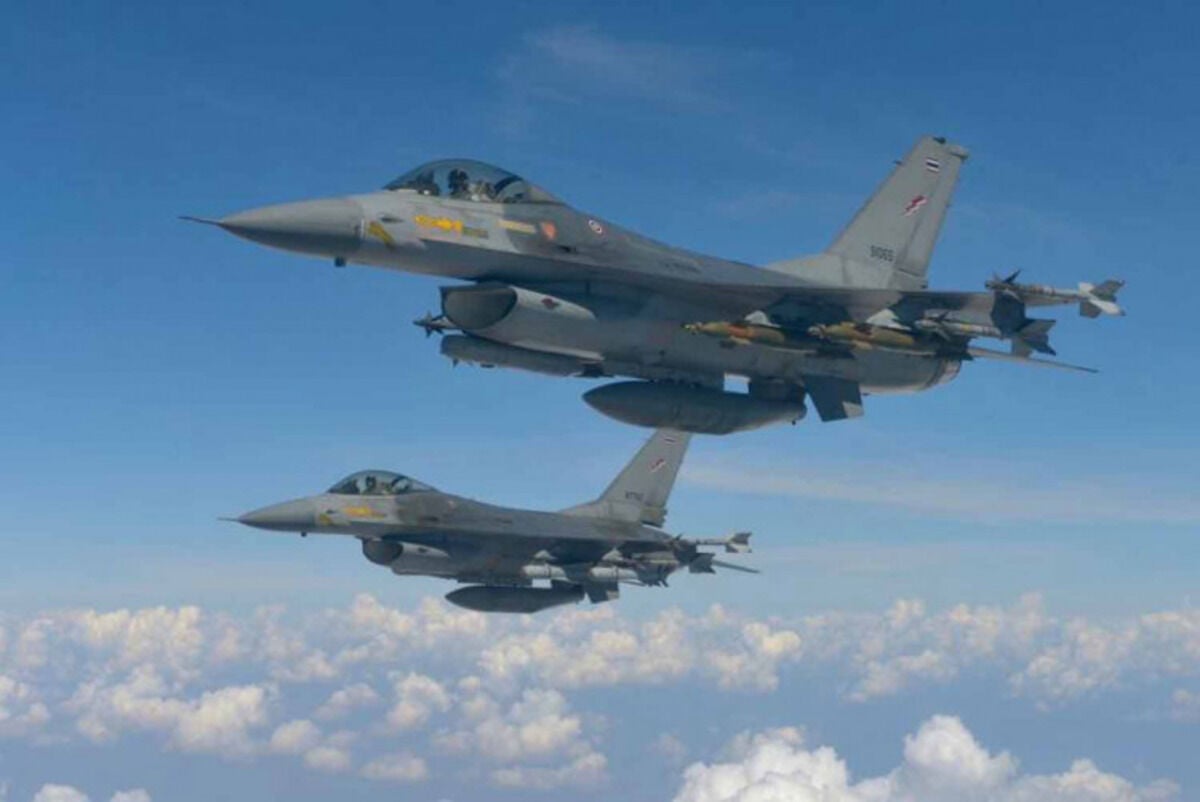Thai defence minister demands US offset details for F-16 jets

Defence Minister Sutin Klungsang urged the United States to provide comprehensive details on the offset policy related to acquiring F-16 fighter jets by today.
The Thai government remains undecided on whether to opt for the Swedish-made Gripen by Saab AB or the US-made F-16 Block 70/72 by Lockheed Martin for its air force. The Royal Thai Air Force (RTAF) aims to purchase four new fighter jets to replace a dozen ageing F-16s slated for decommissioning soon. Previously, sources indicated a preference for the Gripen.
Sutin emphasised the need for detailed information about offsets before reaching a decision, specifying that Washington must submit the required data by today.
Under the offset policy, the Thai government mandates that the armed forces consider other reciprocal benefits offered by prospective suppliers as a significant factor in procuring new military equipment.
Sutin’s comments followed a meeting at Government House between Prime Minister Srettha Thavisin and Robert Godec, the US ambassador. The discussion focused on joint efforts to combat narcotics.
Reports indicated that Lockheed Martin representatives accompanied the US ambassador and the fighter jet procurement plan was discussed in a smaller group setting.
According to a source, the US representatives informed the prime minister that Washington would offer additional benefits to Thailand. Sutin has been invited to visit the US and meet with US Defence Secretary Lloyd Austin in mid-August, reported Bangkok Post.
ORIGINAL STORY: Thailand undecided between Swedish Gripen and US F-16 jets
Prime Minister Srettha Thavisin confirmed the government remains undecided on whether to select the Swedish-made Gripen or the US-made F-16 for the Royal Thai Air Force‘s (RTAF) new fighter jet procurement project.
Details of the required offset policy from Saab AB and Lockheed Martin, manufacturers of the Gripen E/F and the F-16 Block 70/72 respectively, are still pending, according to the prime minister yesterday.
The offset policy is a crucial factor that, along with other reciprocal benefits, will influence the fighter jet procurement decision, PM Srettha stated. The armed forces have been instructed to consider these benefits carefully as part of their evaluation process.
“No conclusion has been made at this point as the offset policy details have yet to be submitted.
“However, I will try to get this done as soon as possible while encouraging these two companies to try their very best.”
“This isn’t a small amount of money. So, we have to achieve the maximum benefit for the public interest.”
PMThe 62 year old Thai premier did not specify when a decision would be made, citing uncertainty about the urgency of the procurement project.
“If we are not ready or there is a lack of information needed to make a decision, we won’t rush it”
Despite asserting that the government does not interfere in the RTAF’s decision-making process, the prime minister confirmed that the final decision must be agreeable to both the RTAF and the government.
A committee within the RTAF has indicated a preference for the Gripen, Srettha mentioned. Additionally, he disclosed that he had contacted Robert Godec, the US ambassador to Thailand, on July 15 to expedite the submission of offset policy details related to the F-16 procurement.
The Bangkok-born prime minister stressed the importance of conducting a thorough comparison between the Gripen E/F and the F-16 Block 70/72, reported Bangkok Post.
Lockheed Martin announced on July 15 that it would continue to provide economic value to Thailand through a strong industrial participation or offset proposal, driven by the Thai government’s assessment of the F-16s.
Latest Thailand News
Follow The Thaiger on Google News:


























